Bastart meets Humans of Khartoum
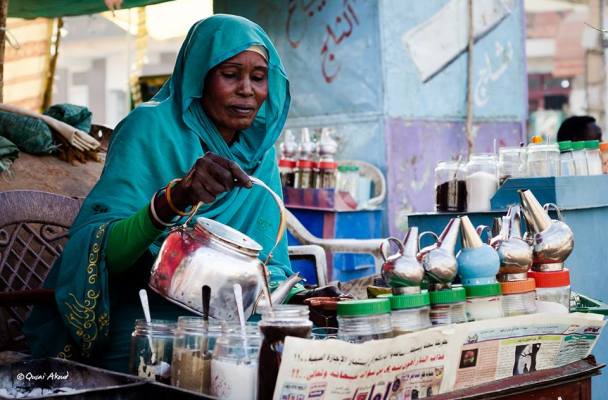
Story of Hajja Suad. “I asked her where her husband was. She hesitantly answered that he had gone to Libya 7 years ago and there had been no word of him ever since. She had to work as a tea-lady to provide for her children and pay for their schools. She starts working at dawn every day, and is done by sunset.” Credits Qusai Akoud – Humans of Khartoum
Sad or funny, told by young or old – he collects them all. From the banks of the River Nile to the streets of Khartoum. Qusai Akoub launched his project to reveal the spirit of his home city through the stories of its people, and he does it in an amazingly gifted way. “Everyone’s got a story. Listen”, he explains simply but convincingly. Somewhat similarly to the man who collected memories and noises in jars, from Patrick Poubel’s short film “For Intérieur”…
Interview
“Khartoum is my home town, I have lived here my entire life but strangely enough I haven’t been in such contact with the society as I am now! I am learning new things about my own people every day – something I might not have achieved without Humans of Khartoum”, says Qusai Akoud, founder of the project.
Bastart: The idea came from Humans of New York. What exactly attracted you in Stanton’s project?
Qusai Akoud: The stories were very inspiring, and I thought I should do something for my own town, Khartoum. A great push to start the project came also from my dearest friend, a HONY’s fan too. She’s helping me manage the page now.
B: Do you have any particular objectives or long-term plans?
Q: The project’s main goal is to capture the spirit and life of Khartoum artistically. The page is relatively new (6 weeks now), so a long-term plan is not exactly clear. I’m letting things come naturally – but there are some sparks and ideas brimming in the horizon.
B: Is it hard to get people talk?
Q: Not that hard as I might have imagined. I was surprised to find people very open to talk to a stranger and share things that they wouldn’t tell to someone they know!
In Khartoum people are very kind, and most have no problem with their photos being taken – very few refused. However, females in general are quite cautious and conservative – I have trouble getting women or girls to agree to their photos being taken.
B: Story or photo, which is more important?
Q: The story and the photo are both important, they complete each other and add dimensions to the subject. Sometimes I get stories, but people refuse the pictures and vice versa, so if any of these elements isn’t present I usually don’t have much to share.
Sometimes I tell people who don’t want their photos taken to let me take a photo of something about them, like a hat from behind, a wristband or even a silhouette, because that completes the story.
B: Who are the humans that attract you most?
Q: Everyone has a story. I used to be attracted to people who live in the outskirts and along the river Nile, but I have recently discovered that even the people in my neighbourhood have interesting stories, but the most interesting “humans” I am attracted to are elderly people.
B: “Humans”, not “People”. What’s your view on this?
Q: “Humans” has deeper meaning to me than “People”. The word “human” unifies us and makes us all equal – and that’s what we sometimes forget – that we are all equal. You are a human regardless of your colour, ethnicity, race or belief – whether you’re a celebrity, a doctor, a student, a carpenter or a worker. You are a Human.
B: Humans of Khartoum in five words?
Q: “Everyone has a story. Listen.”
B: Do you think the “Humans of” phenomenon is closer to Wikipedia or Google Maps?
Q: Neither. It’s a lot deeper than that because it’s about the stories and the people. It’s not a search engine for information or a physical location – it’s where you go and get a dose of real life experiences and wisdom, and hopefully find a sense of understanding, belonging and empathy towards all those people that you don’t really know.
Story of Sameer, the natural-born fisherman. “From the day I was born, my father taught me about fishing and the sea, I never went to school or studied. I am a fisherman since I could remember and I love the craft of fishing and the sea”.
Story of Jailani, a natural-born break-dancer. “Since I was a toddler, I was so hyperactive and always anxious”. With all that energy filling his body, he had to find a way to release the overflowing energy. “Indeed it was break-dancing”, he said, adding: “Break-dancing is essential to me like air is to my lungs.” Jailani loves mystery and anything with a twist of an enigma, he believes that the greatest mystery of all, lies in the creation of a human being, therefore he found himself drawn towards the field of medicine, which he majored in and now he is a medical student in Al Wataneya University, a finalist.
Story of the Farmer. Haj Abdallah Derwesh, lives alone in El Sunut Forest. He came to Khartoum in the early 1970s and settled in the area where the Petrodar Tower resides now, but had to move to the other side of the new Omdurman bridge 5 years ago. “What kind of goats are these?” “These are mixed”, he said, “You know, in the early years when the British came here, they brought their cattle, English goats.” Click on the photo to read the full story with pictures.
I asked him: “What are you staring at?”
“I’m just waiting for someone here, don’t go writing a dramatic story about this.”
Story of Muntasir. “I’ve been living in Al-Emtidad since 1991, but I’m originally from Karkooj, Sinja, and I don’t own a house in Khartoum. I live under this tree.” “Where do you get the money?” “Money comes and goes, just like the shadows of the sun, it comes and goes.” “What do you want to do when you get back to Sinja?” “I want to build a mosque like this one and I want to take my mother to Hajj. I want to make a mosque like this one so people would pray in it and pray for me as well. These are my dreams.” Click on the photo to read the full story with pictures.
For more information about Humans of Khartoum please visit the official Facebook page. For more information about the HO phenomenon read Ode to the Humans.Words by Jurgita Po.Alessi
Short film: For intérieur
Short film by Patrick Poubel (2004, 13’). It tells the story of a little boy and his grandfather, a great collector of memories, who collects noises in jars and dreams of flying off one day and giving his grandson infinity for just one moment.

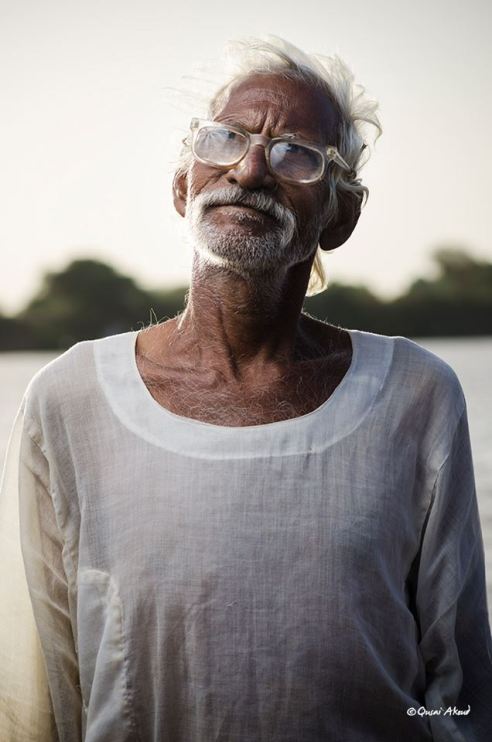
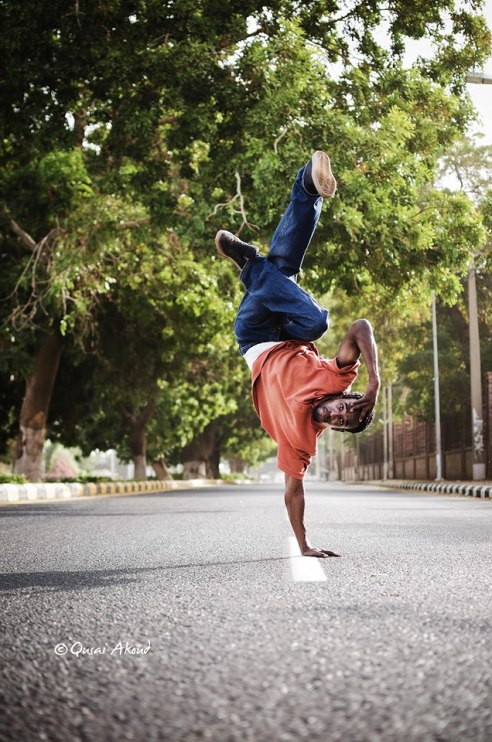
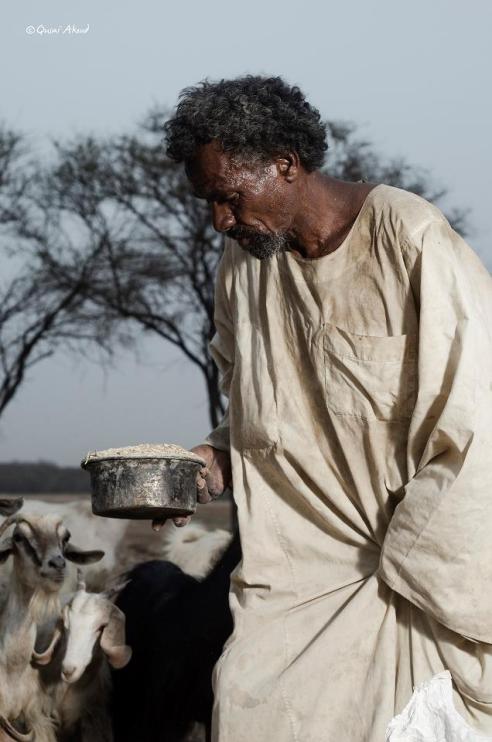
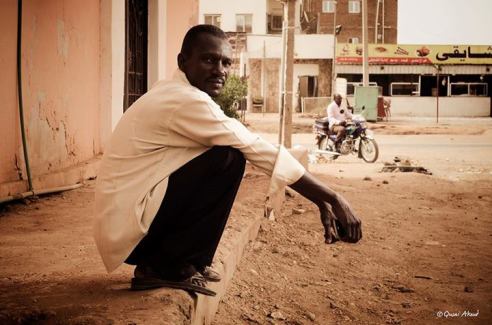
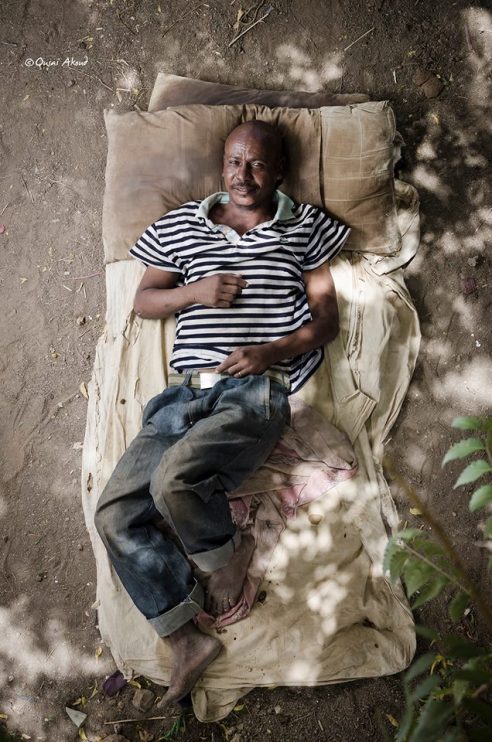
3 Responses to “Bastart meets Humans of Khartoum”
Bastart meets Humans of Lisbon
Reblogged this on Humans of Khartoum.
Thank you for sharing, Humans of Khartoum!!